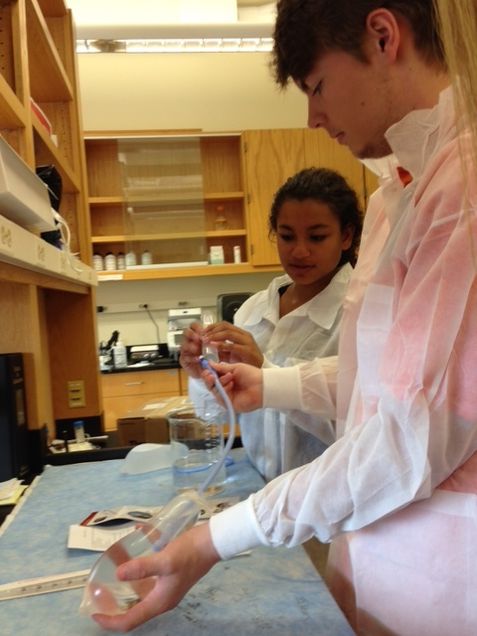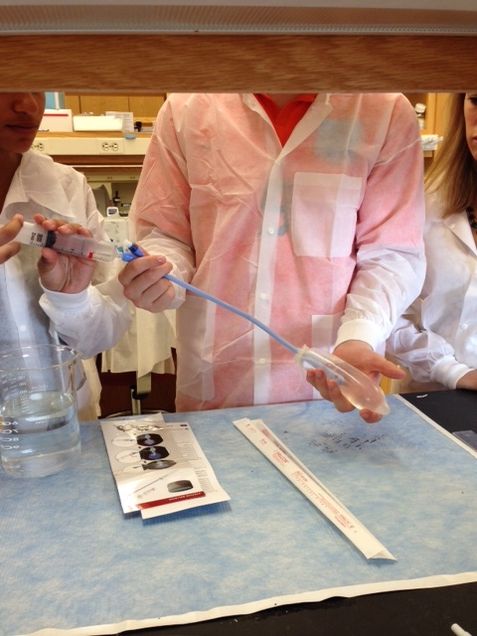Summary: Pre-Departure Research
Since Memorial Day we have been working together in Boston to prepare for our trip to Zanzibar. We have done a lot of literature review to learn everything we need to know. Our literature review has covered a wide range of topics from culture in Zanzibar to comparisons of medical devices. At first, we tried to learn as much as we could about health issues like postpartum hemorrhaging (PPH) and anemia, and then about existing solutions to these problems. More
Presentations
This past month we've spent a lot of time doing research and literature reviews to familiarize ourselves with the most common maternal health issues faced in Tanzania and Zanzibar. We each prepared a presentation on a topic of our choice. More
Experimenting with the UBT
Last week we put the condom-catheter Uterine Balloon Tamponade (UBT) to the test. We filled the balloon with 0.5 liters of water and tested out how long it would last - UBT's are usually needed for anywhere up to 48 hours. The UBT lasted over four days.

Look, Listen, Learn: Dr. Onyango and Dr. Burke
This week we met with two professionals well-versed in the medical sphere of developing countries: Dr. Monica Onyango and Dr. Thomas Burke. Dr. Onyango has extensive experience studying and working in South Sudan, Angola, and her native country Kenya, . She is currently a Clinical Assistant Professor of Global Health at Boston University’s School of Public Health. She gave us insight into the delivery experience for women in East Africa as well as the major influencers on decisions regarding maternal health. She pointed out that many countries have high rates of antenatal care, but women still choose to deliver at home due to privacy and crowding concerns at hospitals. She noted that in largely patriarchal societies, the opinion of the mother-in-law is typically holds the most weight when a decision needs to be made on maternal and child care. More
Maternal Health Landscape in Tanzania and Zanzibar
Though worldwide rates of maternal mortality have seen a decrease of almost 50% in the past 25 years, the quality of maternal healthcare still varies greatly from region to region. Hundreds of thousands of women die each year due to complications during pregnancy, and rates of maternal mortality are 14 times higher in developing regions.1In developing countries, many women experience hemorrhaging during delivery and postpartum. Most cases of postpartum hemorrhage (PPH) are preventable by actively managing the third stage of labor (AMTSL). However, the majority of women in resource-poor areas are not attended by a trained medical professional while giving birth, so they cannot get the care they need. More



